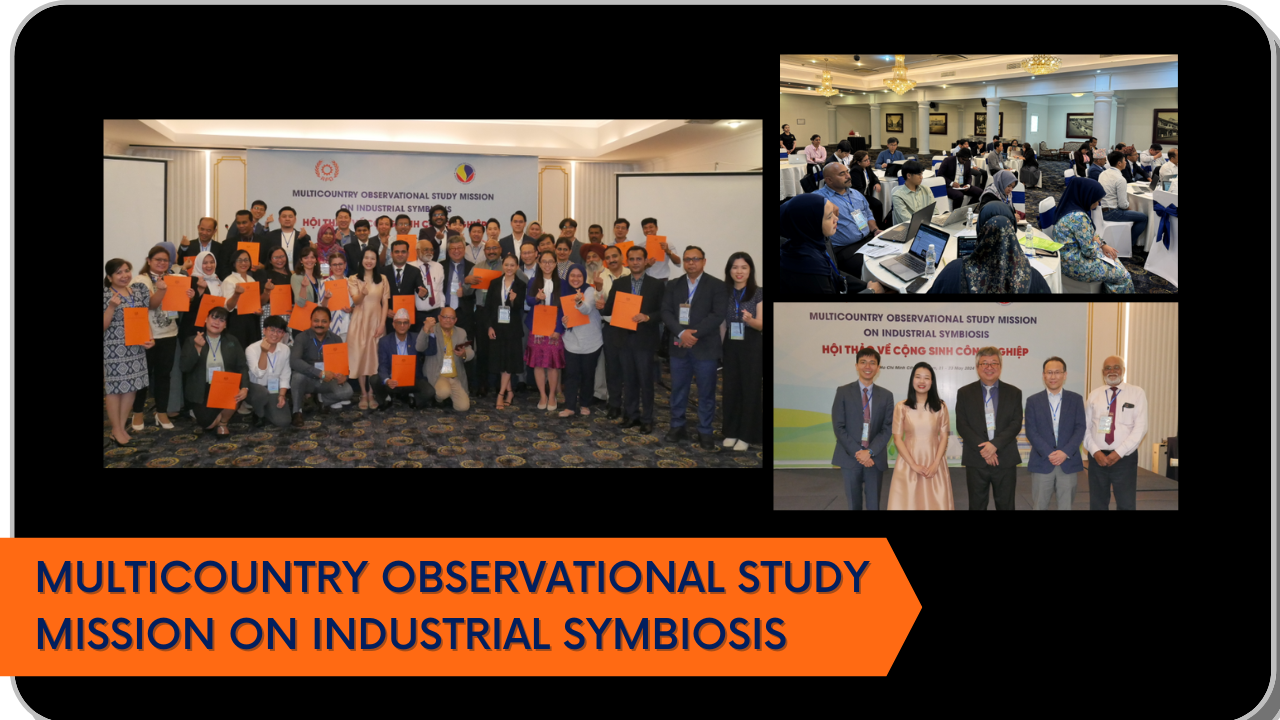
Select Page

Industrial symbiosis refers to the relationships in a network of businesses, public institutions, and associations in which resources, including materials, energy, infrastructure, by-products, and waste, are exchanged and leveraged to maximize their benefits and create more value. It is used as a strategy to facilitate the circular economy and often embodied in the form of eco-industrial parks (EIPs), where businesses and other stakeholders collaborate to strengthen environmental, economic, and social performance. Vietnam has been proactively developing EIPs and converting existing industrial clusters into EIPs to pursue sustainable industrial development.
A study mission on Industrial Symbiosis was organized by STAMEQ in Ho Chi Minh City, Vietnam, 21–23 May, to examine the creation, functions, effectiveness, implications, and sustainability of industrial symbiosis. Forty-two participants from 16 APO members completed the study mission, led by six resource persons, i.e, one from the ROC, one from India, one from Japan, one from UNIDO, and two from Vietnam.
Participants were familiarized with good practices from the ROC, Colombia, India, Indonesia, Japan, and Vietnam, international frameworks and national standards for EIPs, and global initiatives led by UNIDO, inspiring potential collaboration for more sustainable industry policies. Field visits to the Amata City Bien Hoa Eco-Industrial Park and its water treament center and steam-exchange facilities provided participants with a comprehensive understanding of how the circular economy could be embodied and pursued through effective operation of EIPs. Participants learned about practical strategies to involve stakeholders in sustainable industrialization and established networks for potential EIP development.